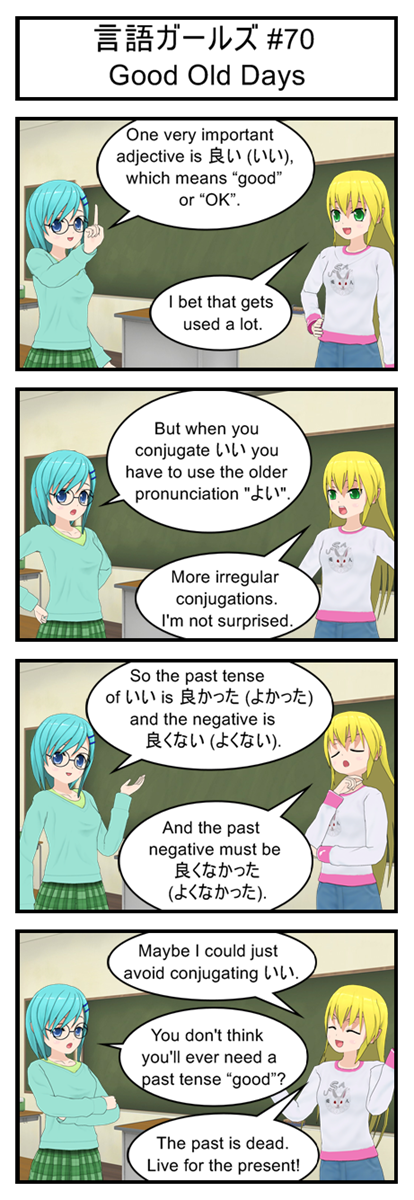
“ii” is one of those short common words that gets written out in hiragana more often than in kanji. You’ll be seeing いい a lot more often than 良い.
More trivia: “Yokatta”, the past tense of “good”, is also a common (but casual) stand alone sentence used to show relief and happiness. Did a friend manage to pass a difficult test? Yokatta. Did your cancer test just come back negative? Yokatta. Did a relative make it through a natural disaster unharmed? Yokatta.
Vocabulary
良い = いい = good; ok
Transcript
言語ガールズ #70
Good Old Days
Blue: One very important adjective is 良い (いい), which means “good” or “OK”.
Yellow: I bet that gets used a lot.
Blue: But when you conjugate いい you have to use the older pronunciation “よい”.
Yellow: More irregular conjugations. I’m not surprised.
Blue: So the past tense of いい is 良かった (よかった) and the negative is 良くない (よくない).
Yellow: And the past negative must be 良くなかった (よくなかった).
Yellow: Maybe I could just avoid conjugating いい.
Blue: You don’t think you’ll ever need a past tense “good”?
Yellow: The past is dead. Live for the present!